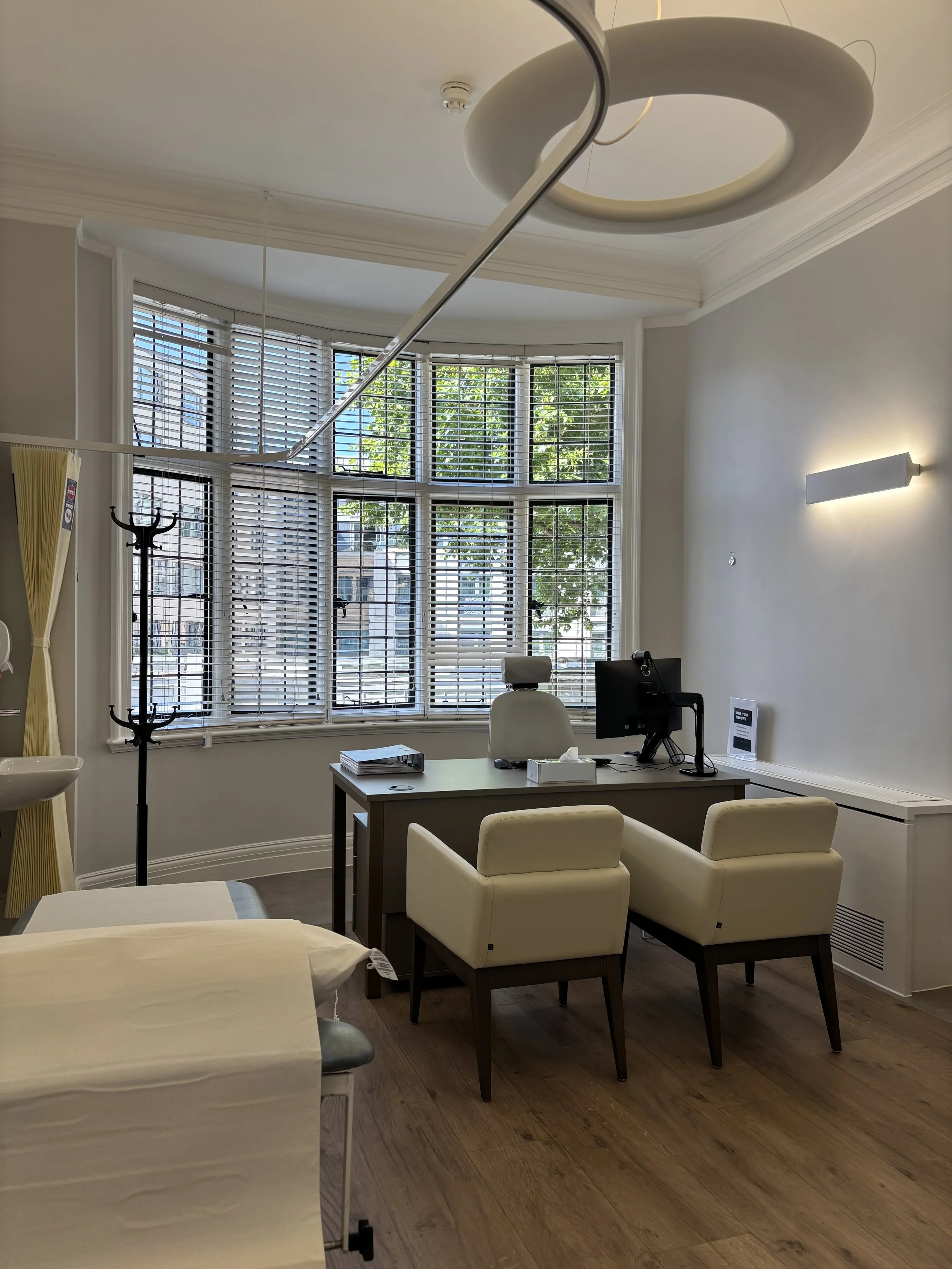Private Consultant Rheumatologist in London
Timely, expert care to help you understand your symptoms, reach a diagnosis, and start the right treatment.
Struggling With These Symptoms or Concerns?
If you're experiencing any of the following, it may be time to seek specialist input:
-
Persistent joint pain or swelling
Persistent joint pain or swelling is not just “wear and tear” — it can be an early sign of arthritis or inflammation. Left untreated, this can lead to stiffness and damage. Early assessment helps identify the cause and protect your joints for the future.
-
Fatigue that doesn’t improve with rest
Ongoing tiredness that doesn’t improve with rest can be linked to autoimmune or rheumatic disease. Because fatigue has many possible causes, a thorough assessment is key to ruling out serious conditions and finding strategies to improving your symptoms.
-
Joints feeling stiff in the morning & lasting for more than 30 minutes
If your joints feel stiff for more than 30 minutes after waking, it’s often a sign of inflammatory arthritis rather than “wear and tear.” Early diagnosis allows treatment that can ease symptoms and protect joint health.
-
Joint or back pain — especially if you have psoriasis
Back pain is common, but if it starts at younger age, wakes you at night, or improves with exercise, it could be inflammatory arthritis of the spine, especially if you have a history of psoriasis. Early investigation will help reach an accurate diagnosis and a treatment plan to prevent long-term damage.
-
Rashes, dry eyes/mouth, or sensitivity to sunlight
Skin rashes (especially on the face), ongoing dryness of the eyes or mouth, or feeling unwell after sun exposure can sometimes be early signs of conditions such as lupus or Sjögren’s syndrome.
-
Recurring mouth or genital ulcers
Frequent painful ulcers in the mouth or genital area can sometimes be more than just a nuisance. In certain cases, they are linked to autoimmune or inflammatory conditions such as Behçet’s disease or lupus.
-
Abnormal blood tests (e.g. raised CRP/ESR, positive ANA or RF)
Blood test results showing inflammation markers (such as CRP or ESR) or auto-antibodies (like ANA or rheumatoid factor) don’t always mean you have arthritis or autoimmune disease — but they can be an early clue. Sometimes these results appear before symptoms develop. A rheumatology review can help interpret what the results mean in your situation and whether further checks or treatment are needed.
-
Cold fingers or toes that change colour — Raynaud’s phenomenon
If your fingers change colour (white, blue, red) in the cold or feel painful and numb, this may be Raynaud’s phenomenon. Sometimes it occurs on its own, but it can also be a sign of autoimmune disease. Getting checked helps separate harmless from more serious causes.
-
Concerns about bone health, including risk of osteoporosis or fractures
Breaking a bone after a small fall or noticing loss of height may signal osteoporosis. This is common, especially in women after menopause, but preventable — treatment can strengthen bones and reduce fracture risk. A specialist review can assess your bone health and guide protection strategies.
-
Unexplained weight loss, night sweats, or recurrent fevers
Losing weight without trying, waking up drenched in sweat, or having repeated fevers can sometimes signal inflammation or an underlying autoimmune condition. While there are many possible explanations, these symptoms should not be ignored. A specialist assessment can help uncover the cause and ensure nothing serious is missed.
-
Worrying symptoms that don’t fit into a single diagnosis
Sometimes symptoms don’t line up neatly with one condition — for example, a mix of pain, fatigue, rashes, or abnormal blood tests. Autoimmune and rheumatic diseases can present in complex ways, and it’s normal to feel frustrated when there isn’t a clear answer. A specialist review can help piece together the bigger picture, rule out serious conditions, and guide the next steps in your care.
Whether your symptoms are new, ongoing, or unclear, I offer a thoughtful, systematic approach to finding answers and starting treatment.
If you’re seeking a second opinion, or feel like you're not getting anywhere with your current clinician, I can help provide clarity and a fresh perspective.
My goal is to help you find answers quickly, reach a clear diagnosis, and work with you on a treatment plan that supports your recovery and long-term wellbeing.
Why Patients
Choose to See Me
-
I am currently the highest-rated and most-reviewed rheumatologist on both Doctify and Google, reflecting the positive experiences of hundreds of patients who value individualised, evidence-based, patient-centred care.
-
You’ll always see me — not a junior doctor or intermediary. I personally carry out your assessment, diagnosis and ongoing management.
-
Private consultations are often available within a week, helping you avoid delays and start moving forward sooner. Urgent appointments can usually be accommodated the same or next working day.
-
I take the time to listen, explain, and answer questions — helping you understand your condition and feel confident in your care.
-
As a dual-trained specialist in both rheumatology and general internal medicine, I regularly help patients with unclear diagnoses or multisystem problems that don’t fit a single label.
-
My goal is not just to manage a disease, but to support your overall wellbeing — through tailored treatment plans, lifestyle guidance, and input from trusted colleagues when needed.
-
Whether you are self-paying, insured, or transitioning between private and NHS care, I work closely with your GP and other specialists to ensure your care is joined up and consistent.
Meet Dr. Animesh Singh
I am a Consultant in Rheumatology and General Internal Medicine, based at the Royal Free Hospital, one of London’s leading tertiary referral centres. I also see private patients at:
I manage a wide range of conditions — from inflammatory arthritis, gout and osteoporosis to lupus and complex, overlapping or unexplained symptoms. My dual training in rheumatology and internal medicine allows me to take a broad and joined-up view, particularly when symptoms don’t fit a textbook pattern.




